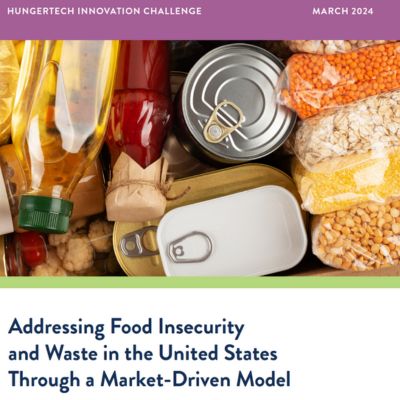AgriNovus Indiana, an initiative to grow the state’s agbioscience economy, released new secondary research identifying the need for market-driven technologies that ensure increased and equitable food distribution to eliminate hunger.
The study, Addressing Food Insecurity and Waste in the United States Through a Market-Driven Model, was conducted by Purdue University student, Tushar Sonvani, to inform the scope of the 2024 HungerTech Innovation Challenge that tasks innovators with creating and implementing tech-enabled business solutions that connect food supply with food demand. A winning solution will receive $25,000 to help accelerate commercialization of their solution.
The study unveils a key set of challenges that need to be solved to eliminate food insecurity, including:
- Logistical gaps in the food supply chain: current critical inefficiencies exist in capturing, managing and redirecting surplus food from points of excess – such as producers and retailers – to communities grappling with food insecurity (this is exacerbated for perishable goods).
- Inadequate demand planning and forecasting: deployment of tools for accurately forecasting the production of surplus food and quantifying demand from food-insecure populations have significant deficiencies.
- Preservation: there are shortfalls in current food preservation technologies to prolong shelf life of perishables without detracting nutritional value or safety.

